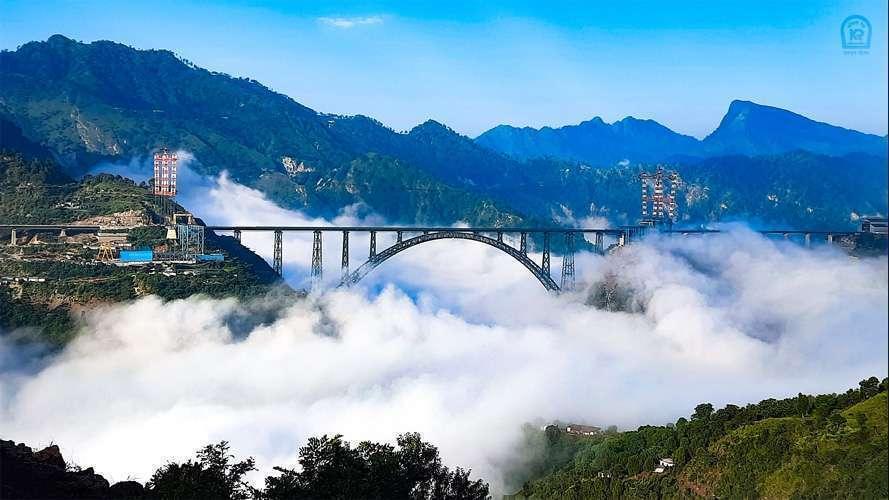
PM Modi to Inaugurate USBRL Project in J&K on April 19
India is on the cusp of a major transportation revolution, and the recent announcement by the Prime Minister Narendra Modi’s office is a testament to that. The Prime Minister will inaugurate the Udhampur-Srinagar-Baramulla Rail Link (USBRL) on April 19, a project that has been in the works for decades. The 272-kilometer long railway line is a significant milestone in the country’s infrastructure development, and its inauguration is expected to have a profound impact on the lives of the people in Jammu and Kashmir.
The USBRL project is a massive undertaking that includes a 119-kilometer tunnel and features India’s highest railway bridge over the Chenab River. The project has been in the works since 1993, but it has faced numerous delays and setbacks over the years. However, the government’s renewed focus on infrastructure development has finally given the project the push it needed to reach its completion.
The USBRL project is not just a railway line; it’s a game-changer for the people of Jammu and Kashmir. The railway line will connect the Kashmir Valley with the rest of the country, improving connectivity and facilitating the movement of goods and people. The project is also expected to boost economic growth and development in the region, creating new job opportunities and increasing trade.
The USBRL project is also a symbol of India’s commitment to its northeastern states. The project will provide a direct rail link between the Kashmir Valley and the rest of the country, bypassing the traditional routes that pass through Pakistan. This will not only improve connectivity but also reduce the dependence on Pakistan-controlled routes.
The inauguration of the USBRL project is also expected to be a major boost to the tourism industry in Jammu and Kashmir. The state is known for its stunning natural beauty, and the USBRL project will make it easier for tourists to access the region. The project will also provide a new route for pilgrims visiting the Vaishno Devi shrine in Katra, one of the most revered Hindu shrines in the country.
The USBRL project is not just about connectivity; it’s also about economic development. The project will create new job opportunities and increase trade between the Kashmir Valley and the rest of the country. The project will also provide a new route for goods movement, reducing transportation costs and increasing the competitiveness of industries in the region.
The inauguration of the USBRL project is expected to be a grand affair, with Prime Minister Narendra Modi attending the event. The ceremony will be attended by top government officials, including the Chief Minister of Jammu and Kashmir, and other dignitaries. The event will also be marked by a series of cultural programs and activities, showcasing the rich cultural heritage of the region.
In addition to the inauguration of the USBRL project, the government has also announced the introduction of two Vande Bharat trains, one from Srinagar and another from Katra. The Vande Bharat trains are high-speed trains that are known for their comfort and efficiency. The introduction of these trains will not only improve connectivity but also provide a comfortable and convenient travel experience for passengers.
The security situation in Jammu and Kashmir has been heightened ahead of the visit, with top security officials reviewing the security arrangements. The security forces have been put on high alert, and a large number of personnel have been deployed in the region to ensure the safety of the Prime Minister and other dignitaries.
The inauguration of the USBRL project is a significant milestone in India’s infrastructure development, and it’s a testament to the government’s commitment to developing the country’s transportation infrastructure. The project will not only improve connectivity but also boost economic growth and development in the region.
As the USBRL project is inaugurated, it’s an opportune moment to reflect on the significance of this project and its potential impact on the lives of the people in Jammu and Kashmir. The project is a symbol of India’s commitment to its northeastern states and a testament to the government’s focus on infrastructure development.



